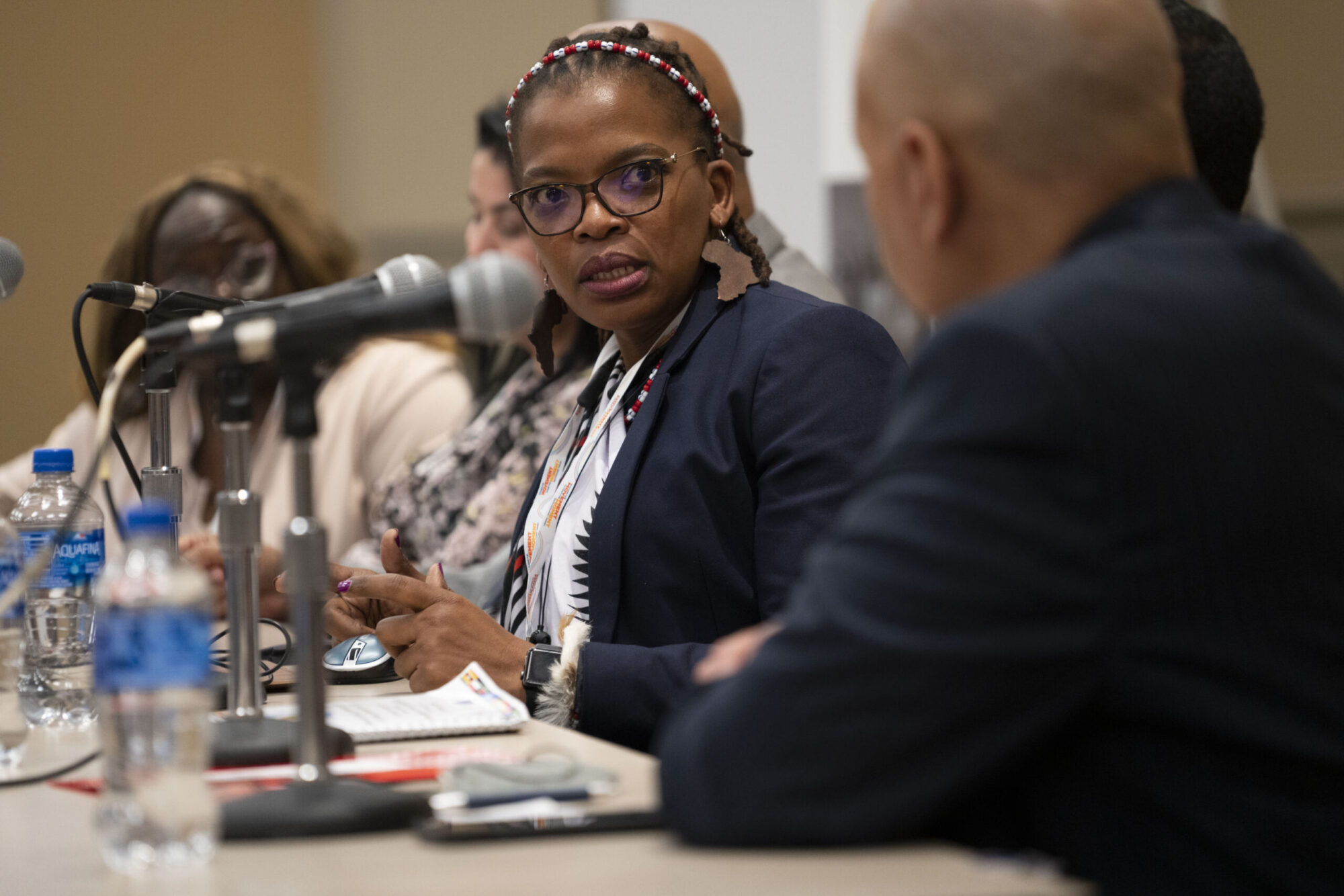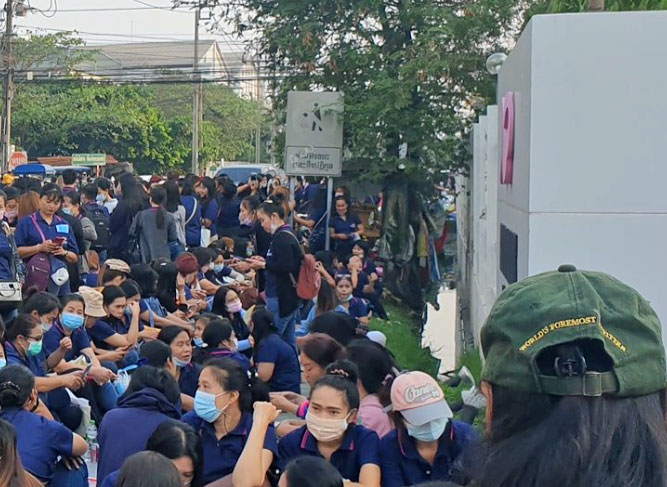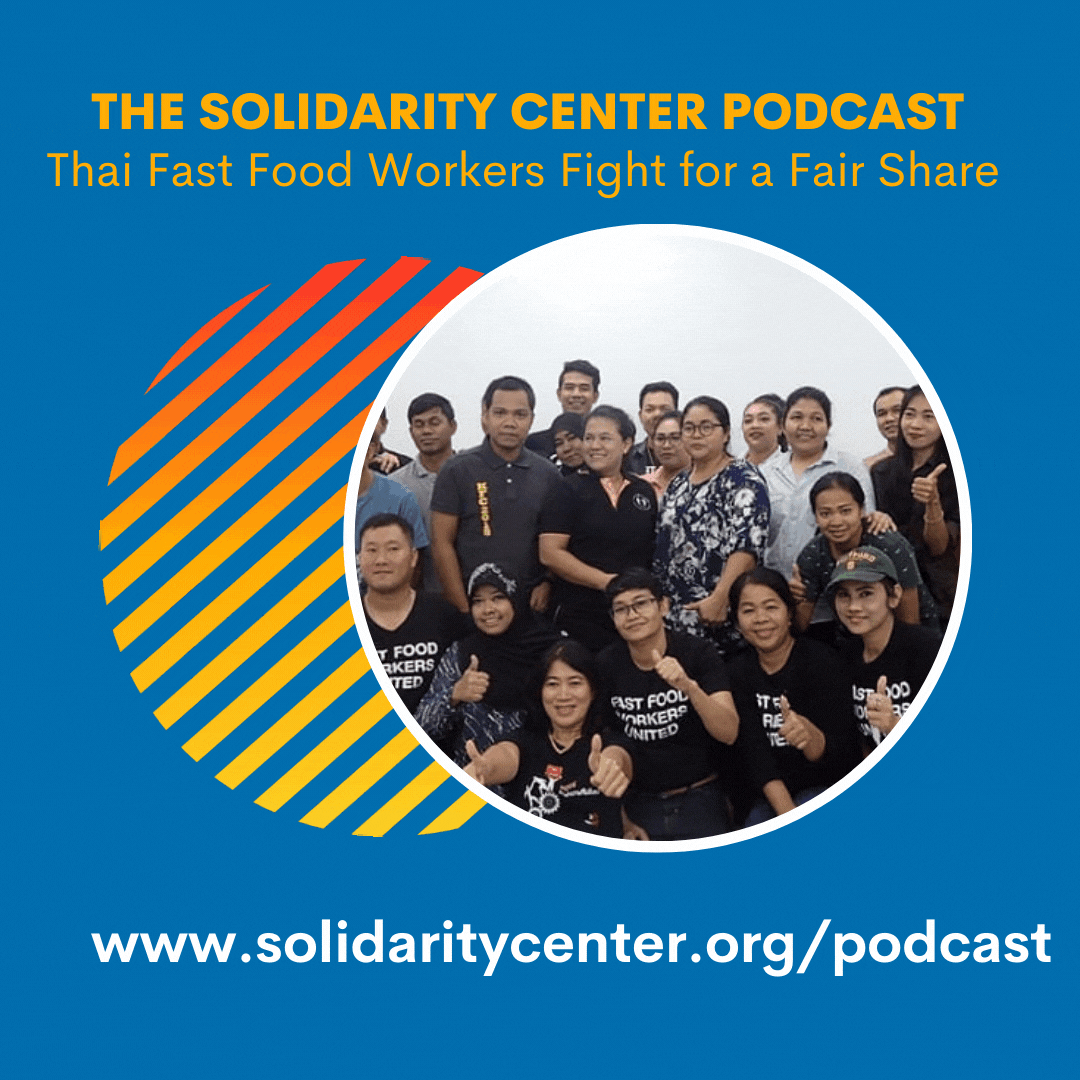The Global Organizing Symposium, a daylong side event of the AFL-CIO Convention, brought together workers and activists from around the world to share experiences focused on building collective power for workers post-pandemic and highlighted their role in fighting...
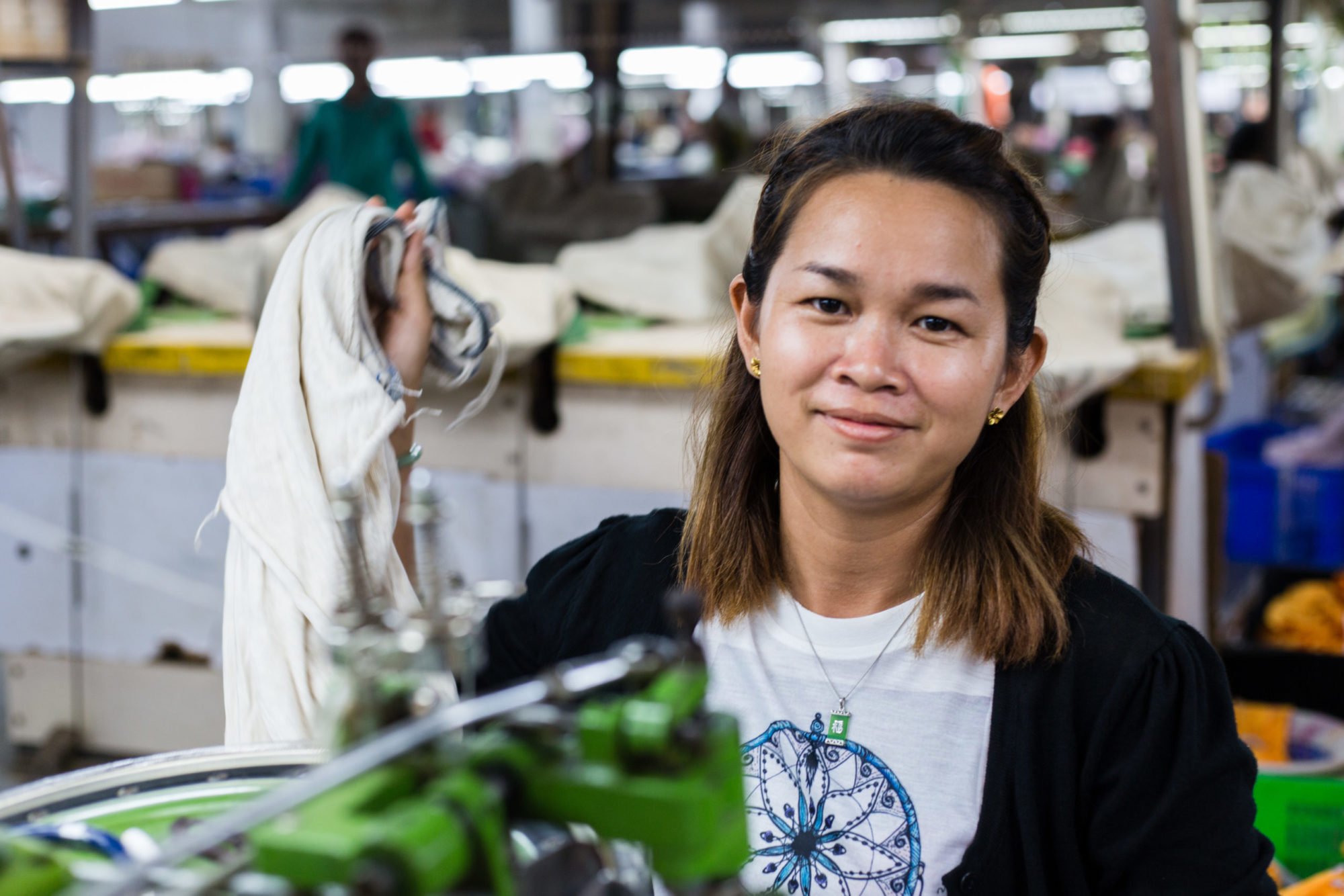
Heng Rithy, a garment worker in Cambodia, says her factory has good working conditions and she can support her family because workers have a union. Credit: Solidarity Center/Shanleystudio
An estimated 450 million people work in global supply chains—in textiles, retail, fisheries, electronics, construction, tourism, transport and agriculture. Economic globalization has created benefits for consumers, business and suppliers, but the practice of sourcing goods and services from countries where wages are low and laws are lax often results in jobs that are insecure and informal, involving dangerous workplaces, forced overtime and even slavery.
The Solidarity Center works with unions, worker associations and other allies in countries throughout the global supply chain in countries such as Bangladesh, Honduras, Lesotho, Morocco and Uzbekistan to address poverty wages, dangerous and unsafe working conditions and limited rights on the job.
For instance in Lesotho, the Solidarity Center partnered with labor rights and women’s rights organizations to negotiate a worker-centered, precedent-setting program to comprehensively address the rampant gender-based violence and harassment denying thousands of women garment workers a safe and dignified workplace. The Solidarity Center is helping lead training in addressing and preventing sexual harassment and other forms of gender-based violence among 10,000 workers at five factories there.
Migrant workers comprise a large part of the global supply chain, traveling to countries such as Malaysia to work in factories and to Gulf countries as domestic workers. The Solidarity Center partners with unions such as the Central Organization of Trade Unions-Kenya and the Kuwait Trade Union Federation to advocate for policies and legislation that address the exploitation and abuse migrant workers face, and educate workers who plan to work abroad about labor laws and workplace rights in their origin and destination countries.
Thai Workers Win Historic $8.3 Million in Back Pay, Financed by Victoria’s Secret
Agreement, the Largest Wage-Theft Settlement at a Garment Factory, Follows Year-Long Advocacy by International Labor Rights Advocates The Solidarity Center and the Worker Rights Consortium (WRC) announced today that more than 1,250 Thai workers who sewed bras...
Podcast: Thai Fast Food Workers Fight for a Fair Share
The Fight for $15 movement in the United States, in which workers seek a living wage and a union, is part of a global struggle by fast food workers often employed by the same multinational corporations that make massive profits even as their employees struggle to get...
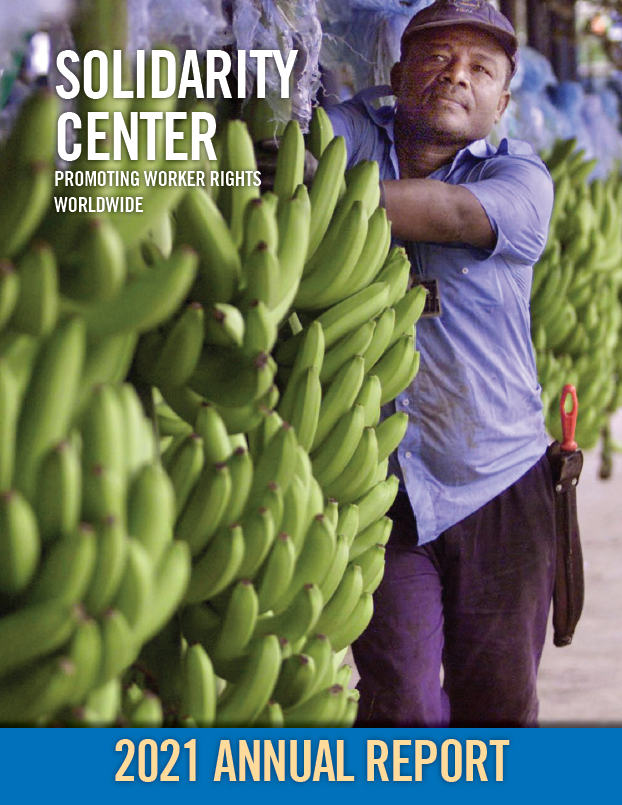
2021 Annual Report
Download here.
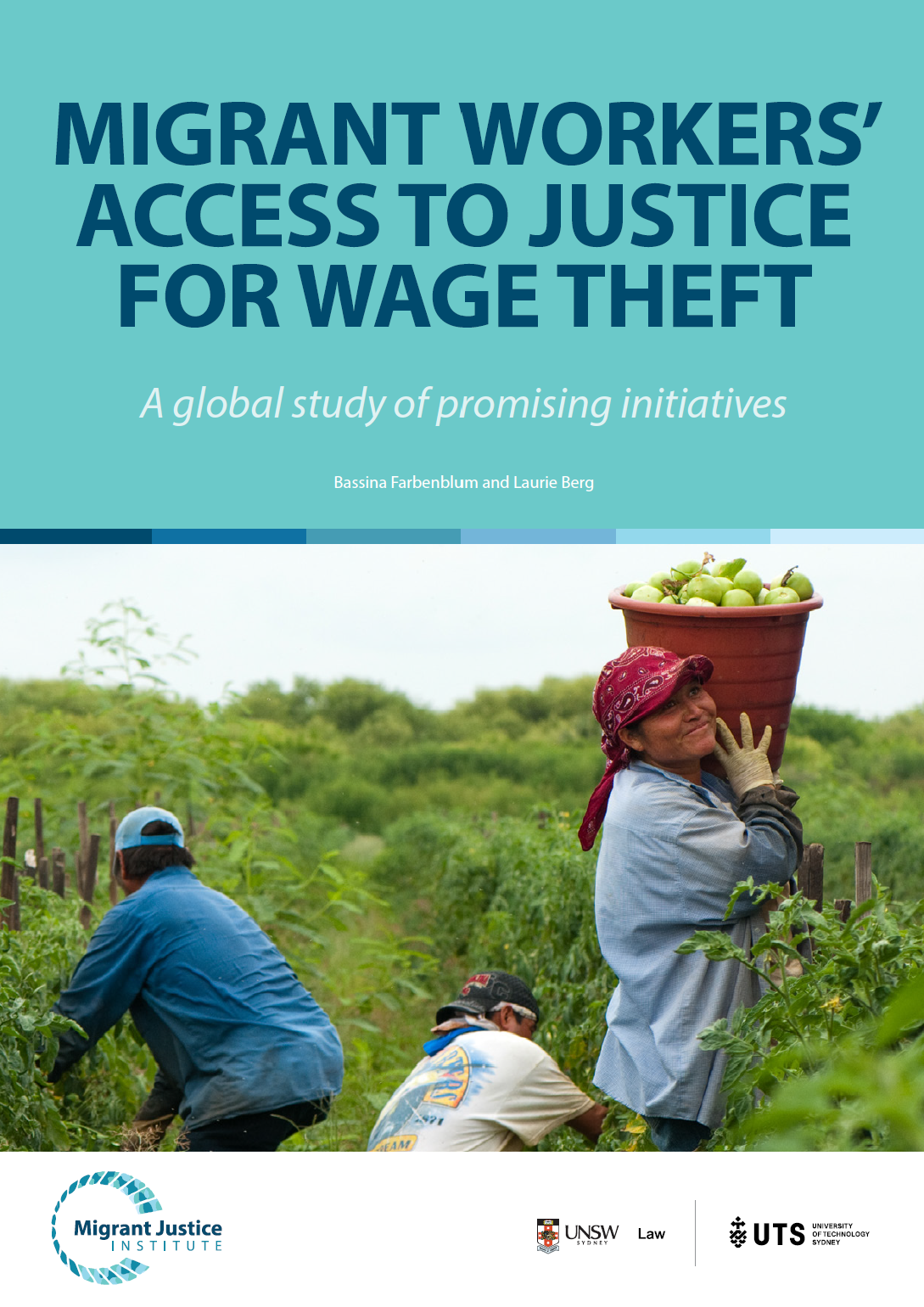
Migrant Workers’ Access to Justice for Wage Theft: A Global Study of Promising Initiatives
The report identifies initiatives from around the world that enable migrant workers to obtain redress for wage theft through administrative and judicial mechanisms. These initiatives shift risks and burdens of wage recovery away from workers and onto government and...
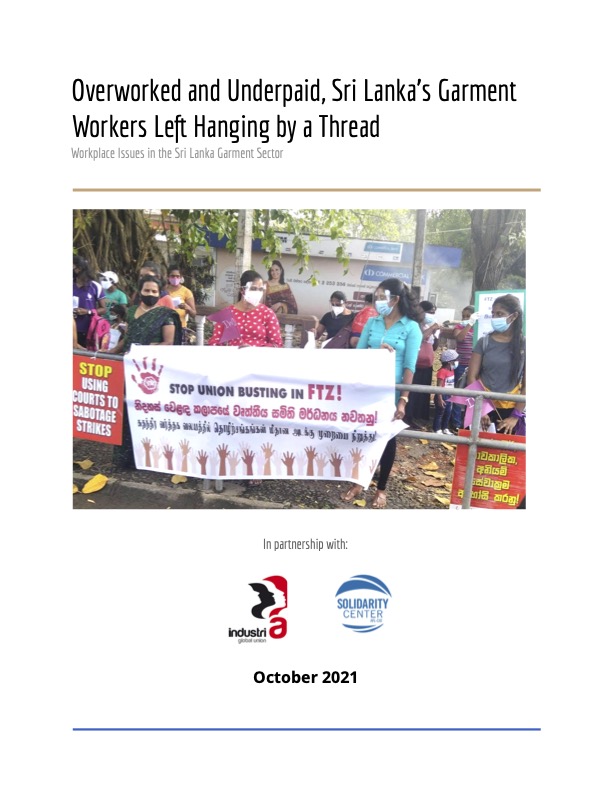
Overworked and Underpaid, Sri Lanka’s Garment Workers Left Hanging by a Thread
A survey of garment workers in Sri Lanka, conducted in partnership with Solidarity Center and IndustriALL, found employer opposition and harassment has limited their ability to form unions and address workplace rights violations such as increased workloads and work...
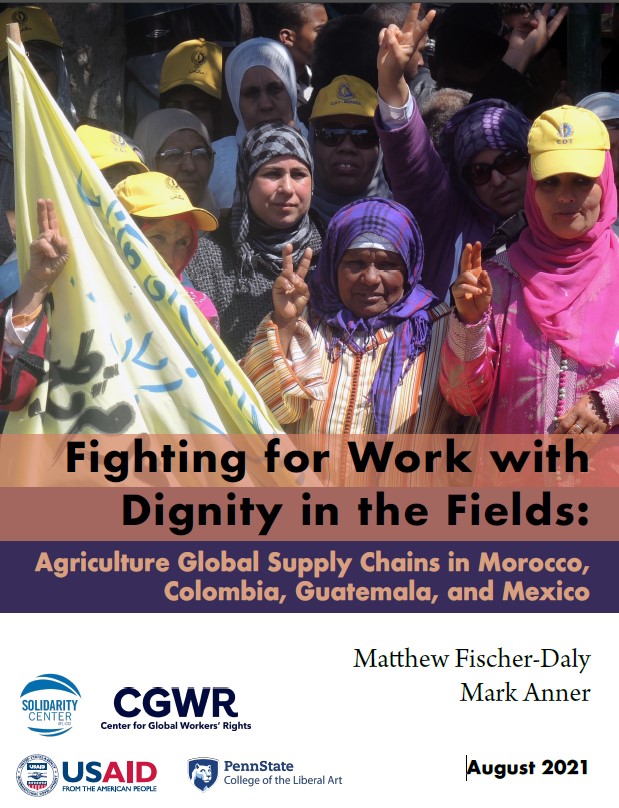
Fighting for Work with Dignity in the Fields: Agriculture Global Supply Chains in Morocco, Colombia, Guatemala and Mexico
Where unions establish collective bargaining, they initiate the strongest mechanism for protecting agricultural workers’ rights, health and dignity. Through analysis of five agribusiness sectors—including palm oil in Colombia, bananas in Guatemala, strawberries in...
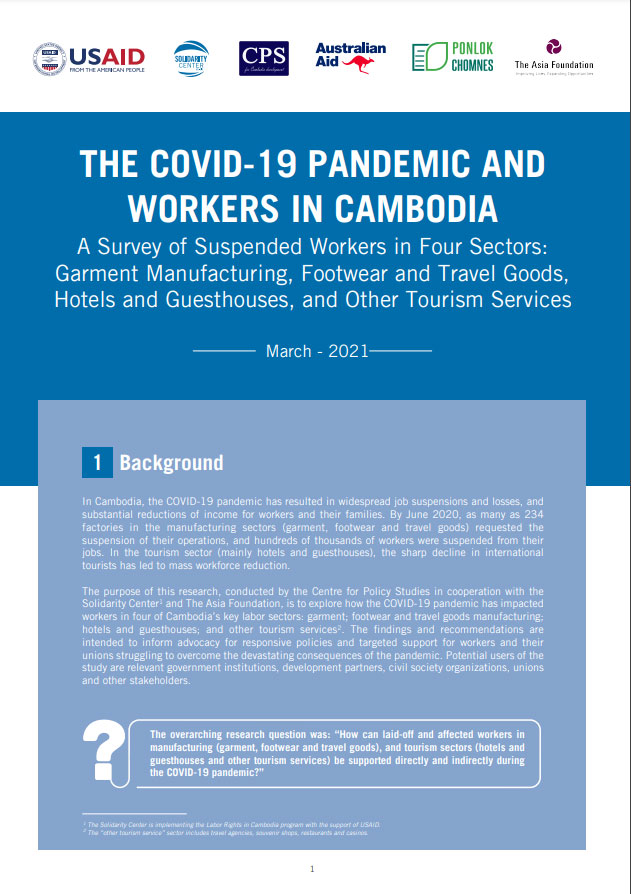
THE COVID-19 PANDEMIC AND WORKERS IN CAMBODIA
As a new wave of COVID-19 hits Cambodia, a new study recommends urgent action to ensure garment and tourism workers workers do not experience widespread loss of jobs and wages as they did in 2020. The Center for Policy Studies survey is supported by Solidarity Center...
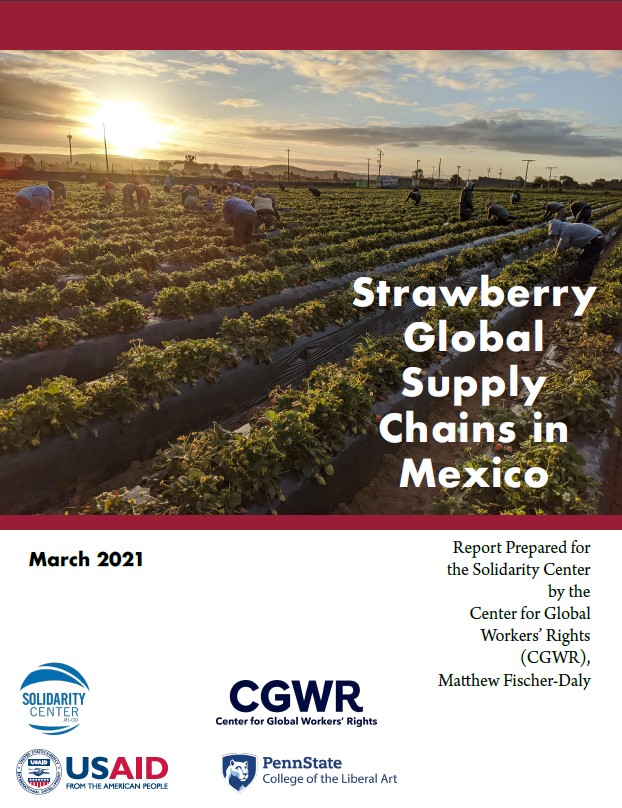
Strawberry Global Supply Chains in Mexico
The governments of Mexico and the United States have supported the growth of the Mexican berry sector by creating conditions for a cheap supply of labor and profit growth. Mexican field workers receive an estimated 12 cents per pound of strawberries sold in U.S....

